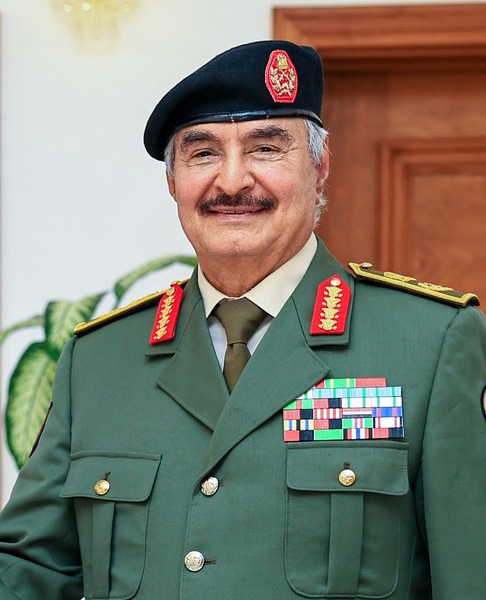Amidst the global attention drawn to the ongoing conflict in Gaza, Russian President Vladimir Putin’s administration continues to expand its influence across Africa.
Russia’s presence in Africa, facilitated by the private military contractor (PMC) Wagner, has been steadily growing since 2018. Initially, Wagner was reported to be providing training to troops under the command of Khalifa Haftar, the renegade military leader of the Libyan National Army, which is affiliated with the eastern parliament of Libya.
The death of Wagner’s founder and Putin ally, Yevgeny Prigozhin, following his failed coup attempt in Russia last year, cast uncertainty over the fate of the PMC’s operations in Libya and Africa.
Despite Prigozhin’s demise, Russia maintains several PMCs, with Wagner being the most closely associated with the Kremlin and deployed extensively across Libya and Africa. Wagner’s operations provide Russia with financial, military, and political influence across these regions at minimal cost.
The Kremlin, recognising the strategic importance of Wagner, did not dissolve the PMC after Prigozhin’s downfall but instead redistributed his commercial and military interests among various Russian intelligence services, according to a recent report by the Royal United Services Institute (RUSI).
Similar to other PMCs like the United States’ Constellis (formerly Blackwater), Wagner enables the Russian government to engage in overseas conflicts indirectly, projecting power while maintaining plausible deniability. This distance from state forces allows PMCs to conduct unconventional warfare, including campaigns of terror and disinformation.
Command of Wagner’s overseas activities now falls under Russia’s military intelligence (GRU), led by General Andrei Averyanov. Wagner’s operations are facilitated through intermediary PMCs like Convoy, established in Russian-occupied Crimea in 2022, and Redut, which was established in 2008 to protect Russian commercial interests in Ukraine.
Wagner’s Ukrainian operations have been renamed the Volunteer Corps, while other units are designated as the Expeditionary Corps. Wagner initially aimed to recruit a force of 40,000 contractors across Africa, although this number has since been reduced to 20,000, still significantly larger than its current deployment.
General Averyanov’s past involvement with Unit 29155, a wing of Russian military intelligence responsible for foreign assassinations and destabilisation efforts in Europe, provides insight into Wagner’s strategic intent.
Africa’s significance, given its abundant mineral and energy resources, coupled with its youthful demographic profile, makes it a focal point for global interests. Libya, with its substantial oil reserves and gold deposits, holds strategic importance due to its geographic location linking North Africa and Europe.
General Averyanov’s recent travels to meet with Field Marshal Haftar in Libya, followed by visits to Mali, Burkina Faso, the Central African Republic (CAR), and Niger, underscore Russia’s efforts to secure resource contracts in exchange for security assistance.
While Haftar’s alliance with Wagner in Libya facilitates Russian interests, Wagner’s operations extend beyond military support. Reports indicate involvement in illegal activities such as drug trafficking, gold smuggling, and human trafficking, leveraging its presence in eastern Libya.
The Expeditionary Corps, currently estimated to have 800 contractors in Libya and 4,600 across sub-Saharan Africa, operates three air bases facilitating logistics between Libya and other sub-Saharan countries.
Negotiations are underway to grant Russian warships docking rights at Tobruk port in Libya, offering air defence systems and pilot training to the Libyan National Army (LNA). This move potentially deepens Russia’s Mediterranean presence and challenges European interests in the region.
While Wagner remains a significant player in Libya’s complex political landscape, it faces competition from Turkish forces aligned with the Tripoli-based government. Turkey’s alliance with local militias countered Haftar’s advance on Tripoli in 2020, protecting Libyan energy interests controlled by the Tripoli government.
Russia’s partnership with Haftar in Libya may not be immutable, as alliances are contingent on strategic interests. Similarly, cooperation between Wagner and Turkey is plausible, reflecting Russia’s global strategy aimed at fostering a multipolar world order.
Putin’s vision encompasses a global realignment of power, with emerging powers like India and China challenging Western hegemony. Russia’s engagement in Africa represents a strategic move to reshape geopolitical dynamics, extending beyond regional interests.
In conclusion, Russia’s expansion in Africa through Wagner underscores its pursuit of geopolitical influence and access to vital resources. While facing competition and uncertainty, Russia remains committed to leveraging its military and economic capabilities to advance its strategic objectives on the African continent.



















